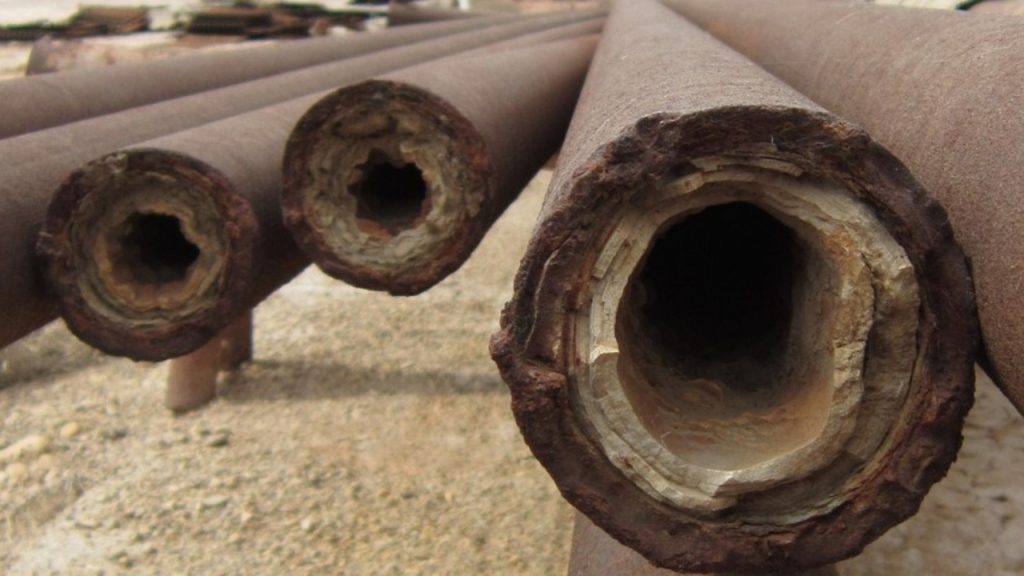Overview
Water scaling, a significant problem that arises when too many impurities are present in water. This can cause difficulties such as your HVAC conditioning system malfunctioning or your boiler not being as efficient as you want t to be. Calcium and magnesium compounds mix in water to form a scale. Hard water is mainly refer to as water that contains scale. Scaling can develop in a variety of places, including plumbing fixtures, appliances, water heaters, pipes, and other water-using devices. In the water, the chemical compounds and pollutants are quite mild.
If we don’t take care of them, the scale will grow and and will be thick. This can potentially cause significant damage to the appliance or to the system which are attach to it. Keep in mind that thicker scaling is more difficult and expensive to remove, which is why you should act as soon as you discover the appearance of scale.
Scaling
Scaling and corrosion are two of the most common problems that industries have with their water systems.
Mineral deposits can pile up and form a dense layer in an industrial boiler, a cooling tower, or another water treatment or distribution system.These deposits contain elements such as calcium, magnesium, iron, copper, silica, and others.This deposit can obstruct heat transfer in a boiler tube, for example. Corrosion, which causes system metal deterioration, can also cause deposits.
Reduce Scaling
Fortunately, there are a number of successful solutions for removing scale from your house, including both salt-free and salt-based water softening technology. These systems employ an innovative ceramic medium that attracts and neutralizes hard water qualities without the usage of regeneration, backwashing, or electricity. Calcium and magnesium become linked to the ceramic granules when water comes into contact with the catalytic surface of the medium. It then get convert into a scale-resistant crystalline form that will not stick to hard surfaces.
This can keep all make changes in water treatment systems. Because they don’t require rinse water or energy, these no-salt systems are more eco-friendly. They are also simpler to maintain and contain no salt, making them a healthier alternative to typical water softening methods.
To remove calcium and magnesium from water, traditional water softeners employ salt and ion-exchange resins. The resin beads, calcium, and magnesium ions come into touch with hard water. They move from the fluid to the resin’s active sites, where sodium ions replace them. This is the most frequent way to soften water, and it necessitates the use of an automatic control head with a timer to ensure optimal regeneration and backwashing cycles. While these systems may necessitate weekly sodium replacement, they also provide the best overall scale removal results.
Points to Remember!
- Scaling is a major issue that occurs when calcium and magnesium mix, causing damage to appliances, water heaters and coolers, and a variety of other water-using devices.
- Pretreatment and chemical treatment are the two therapies available to help prevent scale formation.
- Water scaling can cause long-term harm to a system and, as a result, dysfunction in many operating systems. Hence scaling should be treated as soon as possible.
We can also perform scale control by running the cooling system at subsaturated temperatures or by using chemical additives.
Operational Control
Operation under subsaturation conditions, where scale-forming salts are soluble. This is the most direct technique of limiting the production of scale deposits. Operating at low concentration cycles or controlling pH is sufficient for some salts. However, in most circumstances, significant blowdown rates and a low pH are required to ensure that solubilities at the heat transfer surface are not surpassed. Therefore, it’s also important to keep pH and concentration cycles under tight control.
Chemical additives
Sequestering agents and chelates, which can form soluble compounds with metal ions, can be used to regulate scaling successfully. However, these complexes do not have the same precipitation properties that metal ions have. We use ethylenediaminetetraacetic acid (EDTA) mainly to chelate calcium hardness, and uses polyphosphates to chelate iron. This method necessitates the use of stoichiometric chemical amounts. As a result, it can only be used in waters with low metal concentrations.
Bottom Line
Traditional and salt-free Water softeners will prevent scale buildup in your home and improve overall water quality. By treating hard water now, you are making a significant investment in your home that will save you money, time, and aggravation for many years.
Are you looking for a way to get rid of hard water scaling? Please get in touch with us, so that we, at Jateen Trading Co. can assist you in determining the most acceptable and finest water treatment option for your needs. Do you find this article interesting? Then please check out the rest of the blogs too. We’re sure that you’ll find them fascinating and valuable as well.


